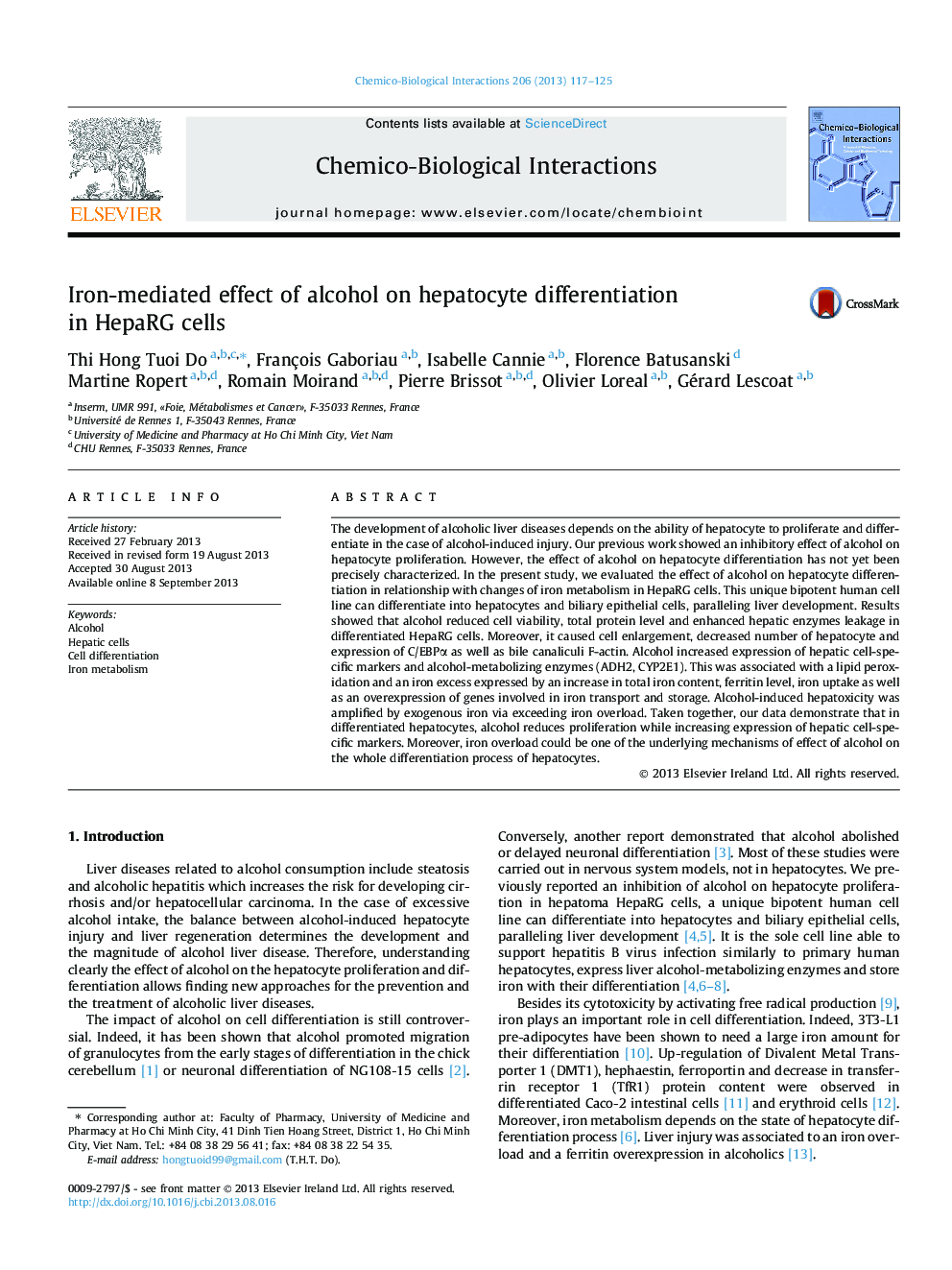| Article ID | Journal | Published Year | Pages | File Type |
|---|---|---|---|---|
| 5848092 | Chemico-Biological Interactions | 2013 | 9 Pages |
â¢It is the first work studying effect of alcohol on hepatocyte differentiation in HepaRG cells.â¢HepaRG is so far a unique human bipotent cell line, paralleling liver development.â¢Iron overload could be one of mechanisms of alcohol-induced effect on hepatocyte differentiation.â¢The presence of exogenous iron accentuates the ethanol effect.
The development of alcoholic liver diseases depends on the ability of hepatocyte to proliferate and differentiate in the case of alcohol-induced injury. Our previous work showed an inhibitory effect of alcohol on hepatocyte proliferation. However, the effect of alcohol on hepatocyte differentiation has not yet been precisely characterized. In the present study, we evaluated the effect of alcohol on hepatocyte differentiation in relationship with changes of iron metabolism in HepaRG cells. This unique bipotent human cell line can differentiate into hepatocytes and biliary epithelial cells, paralleling liver development. Results showed that alcohol reduced cell viability, total protein level and enhanced hepatic enzymes leakage in differentiated HepaRG cells. Moreover, it caused cell enlargement, decreased number of hepatocyte and expression of C/EBPα as well as bile canaliculi F-actin. Alcohol increased expression of hepatic cell-specific markers and alcohol-metabolizing enzymes (ADH2, CYP2E1). This was associated with a lipid peroxidation and an iron excess expressed by an increase in total iron content, ferritin level, iron uptake as well as an overexpression of genes involved in iron transport and storage. Alcohol-induced hepatoxicity was amplified by exogenous iron via exceeding iron overload. Taken together, our data demonstrate that in differentiated hepatocytes, alcohol reduces proliferation while increasing expression of hepatic cell-specific markers. Moreover, iron overload could be one of the underlying mechanisms of effect of alcohol on the whole differentiation process of hepatocytes.
